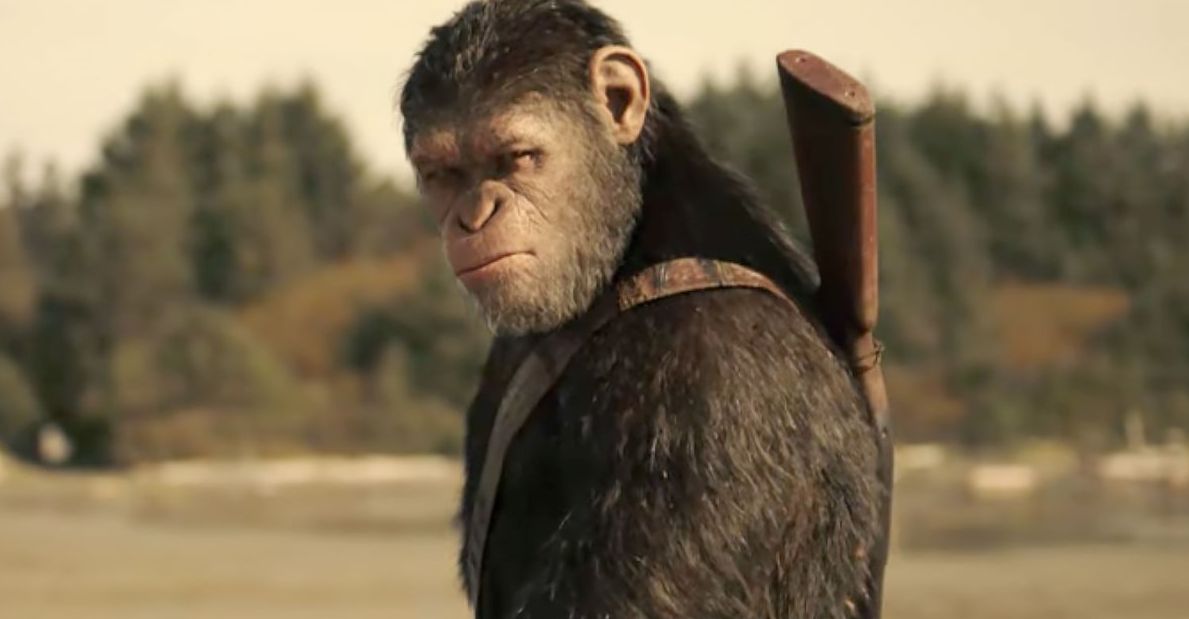
"War for the Planet of the Apes" Review
 “Rise of the Planet of the Apes” was a surprise box office and critical hit in 2011. 2014’s “Dawn of the Planet of the Apes” impressed audiences even more. Now the conclusion of this trilogy, “War for the Planet of the Apes”, allows this franchise to go out swinging, though not quite as high as I had hoped.
“Rise of the Planet of the Apes” was a surprise box office and critical hit in 2011. 2014’s “Dawn of the Planet of the Apes” impressed audiences even more. Now the conclusion of this trilogy, “War for the Planet of the Apes”, allows this franchise to go out swinging, though not quite as high as I had hoped.
The king of motion capture performances, Andy Serkis, returns as Caesar, the leader of the apes. As always, Caesar’s goal is to find a peaceful solution to the apes’ relationship with the remaining humans on Earth. But here he’s pushed to the limit and is forced to battle inner-demons, fueled by hatred, revenge and aggression.
The biggest problem with “War” is that Caesar and the other apes have become so advanced in knowledge, language and culture that they’ve become too human-like. Now 6 years into this series it feels as if we’re watching actors portraying these apes and not real apes. The wow factor when it comes to the technology is gone. The work is still admirable, it’s just no longer awe-inspiring.

Caesar and the rest of the Apes face-off against a rogue Colonel (played by Woody Harrelson), who’s bent on destroying the simian race once and for all. There are a couple of minor twists involving Harrelson’s character (and some obvious similarities to past military movie maniacs), but by and large “War” is very a straightforward saga. And it’s not nearly the amped-up, action-packed finale that the trailers lead you to believe. There are bursts of action, but this is mostly a psychological war drama - especially after Caesar and most of the other apes become prisoners at a detention center.
At 2 hours and 20 minutes, “War” is the longest installment of the trilogy. It’s also the slowest, and the least compelling. But when it comes to story, what’s worked best for this series is on display again: the unique and complicated interactions between the apes and the humans and the not-so-subtle social commentary. The addition of a human girl and comic relief ape (played by Steve Zahn) to this finale seem forced.
At its core, returning director Matt Reeves has made this a celebration of Caesar - a true cinematic hero. Serkis deserves plenty of credit for reviving a movie franchise many thought could never be brought back at this level of quality. And his work has helped spotlight an underappreciated but valid form of acting and will provide a lasting legacy on the industry.


